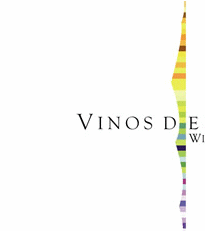Cuba: Cuba Finance Profile 2012
2012/03/06
Cuba Finance Profile 2012
Market-based competition is limited to the black or “informal” market and a small lawful market economy that has evolved since the early 1990s. State intervention remains very strong, even in joint ventures and private farming. Government regulation in the 2000s reduced the number of the lawfully self-employed below the level achieved in the late 1990s. However, Raúl Castro’s announcement to “do away with excessive prohibitions” has been read as forecasting future openings for small-scale market activities. In January 2009, new licenses for private taxis were granted. In agriculture, a program that leases idle state land to cooperatives and private farmers has allotted some 660,000 hectares to a total of 45,000 solicitants. However, the government still defines production plans, and farmers have to sell most of their produce to the state at fixed prices. Hard-currency shops have opened since the mid-1990s that offer a wide array of consumer goods, but all are state-run and have state-set prices. This also applies to the sale of cell phones, computers and DVD players, which were legalized after the transfer of power from Fidel to Raúl Castro.
Government concessions to foreign investors promote cartels, insofar as they create and protect monopolies or oligopolies even in sectors (e.g., tourism) where world market structures would otherwise facilitate competitive outcomes. At the same time, the government has deliberately created a situation of competition between various state or quasi-state firms in a number of areas.
In the 1990s, the government granted discretion to state enterprises to manage foreign trade, and foreign firms managed their own transactions. However, in 2004 the government reduced the number of state firms authorized to engage in foreign trade, centralized purchases, and prevented state firms from retaining their earned foreign exchange. Cuba depends on the world market to export some goods, mainly nickel, and services such as tourism and health care. State control over foreign trade has also increased as Venezuela has emerged as Cuba’s key trade partner, with strong state participation on both sides. The two countries founded the Bolivarian Alternative for the Americas (ALBA) as an alternative to the failed Free Trade Area of the Americas proposed by the United States.
The state owns all banks. There is no capital market.
- Cuba News
-
- CUBA: Obama administration loosens Cuba embargo with new measures
- AFGHANISTAN: Global growth will be disappointing in 2016: IMF's Lagarde
- CUBA: Cuba’s Dire Need For Foreign Investment: What It Means To Its Developing Economy
- ARUBA: CARICOM and USAID reach agreement on development assistance for Caribbean
- CUBA: Cuba among 10 destinations chosen by top luxury travel specialists
- CUBA: Cuba and US agree to cooperate in environmental protection
- Trending Articles
-
- KENYA: Kenya's tea industry moves toward strategic diversification
- CHINA: Forty-six Chinese-owned companies registered in Guinea-Bissau
- GHANA: Ghana steps up to secure electricity supply
- INDIA: Indian central bank chief to step down in surprise move
- TUNISIA: Tunisia augments ICT exports and connectivity
- TANZANIA: Tanzania Breweries now partners with traditional liquor outlet owners









